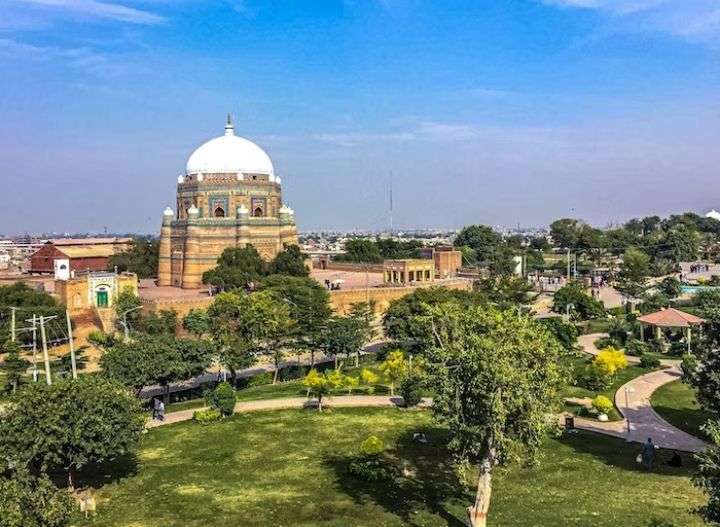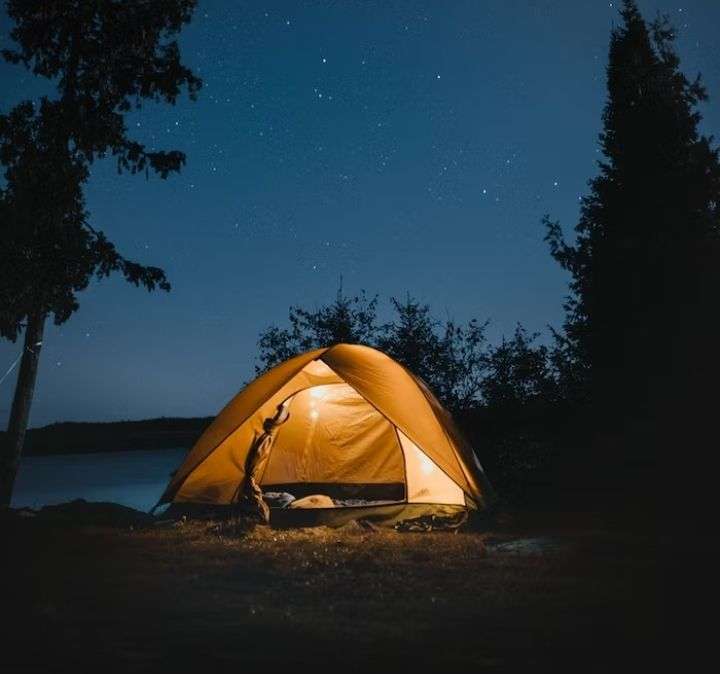Nestled in the heart of Southeast Asia, Cambodia is a country that boasts a rich tapestry of history, culture, and natural beauty. From ancient temples to vibrant markets and serene landscapes, Cambodia offers a diverse range of experiences for travelers seeking an off-the-beaten-path adventure. In this article, we will take you on a virtual tour of some of Cambodia’s best places, ensuring you don’t miss the hidden gems that make this country a truly unique destination.
Contents
Angkor Wat and the Temples of Angkor:
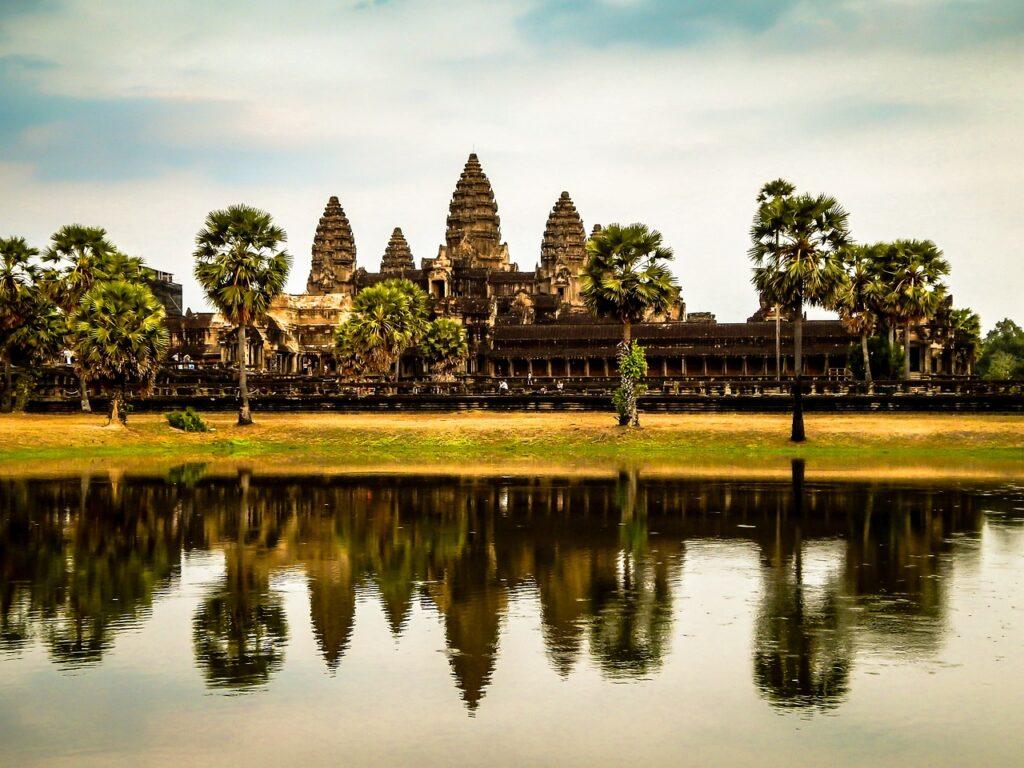
No journey to Cambodia is complete without a visit to the iconic Angkor Wat, a UNESCO World Heritage Site and the largest religious monument in the world. Explore the intricate carvings and stunning architecture that tell the stories of ancient Khmer civilization. Don’t forget to venture beyond Angkor Wat to discover other temples like Bayon and Ta Prohm, each with its own distinct charm.
Phnom Penh – Capital City with a History:
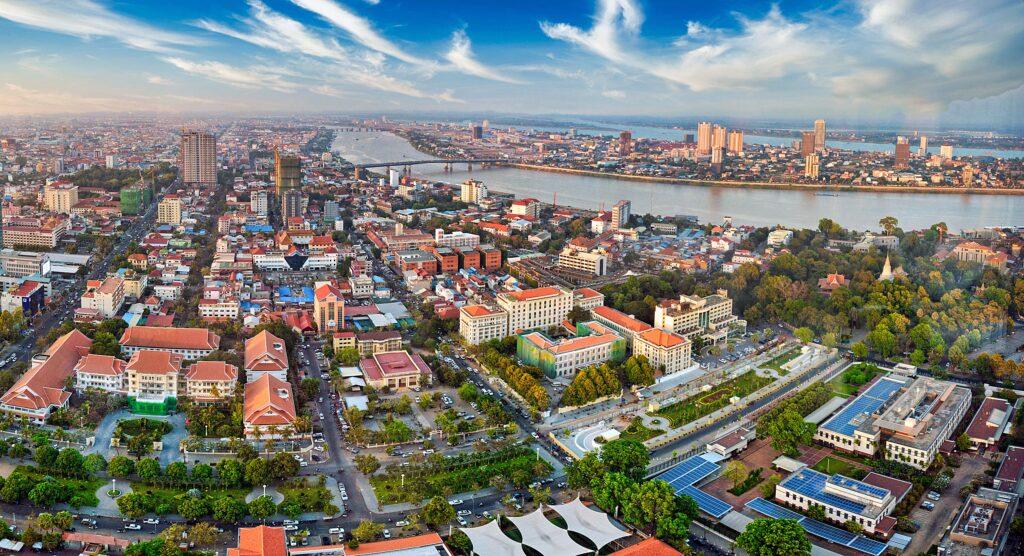
Cambodia’s capital, Phnom Penh, is a dynamic city that beautifully balances tradition and modernity. Visit the Royal Palace, where you can marvel at the Silver Pagoda’s silver-tiled floor and the Emerald Buddha. Pay your respects at the Tuol Sleng Genocide Museum and the Killing Fields to gain a deeper understanding of Cambodia’s tragic history under the Khmer Rouge regime.
Siem Reap – best places
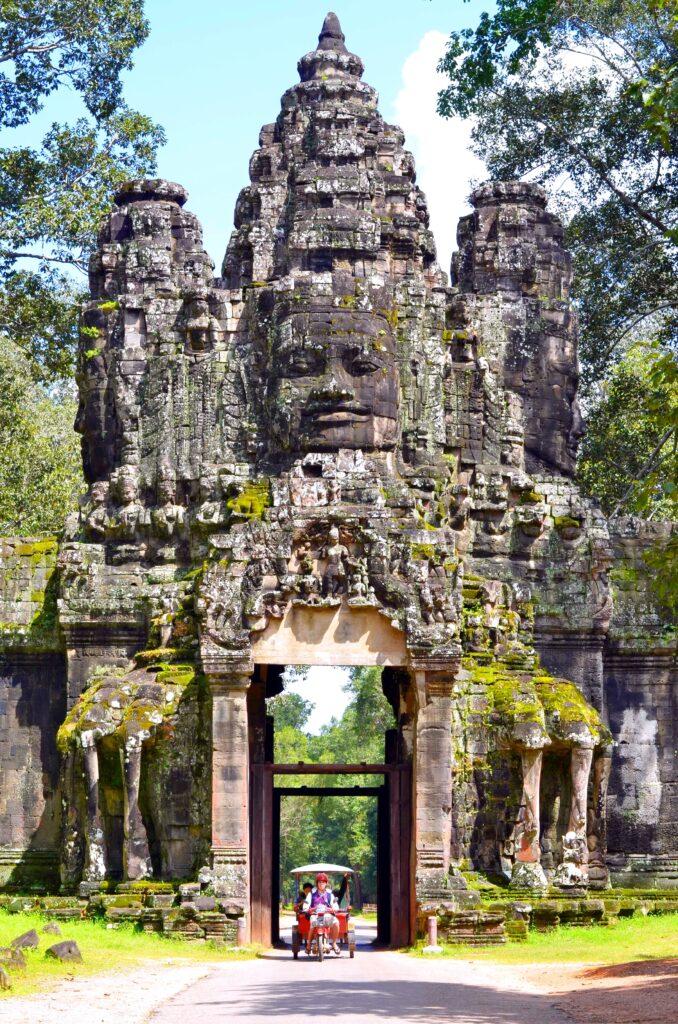
Siem Reap serves as the gateway to the Angkor temples and offers a vibrant atmosphere with its lively night markets, street food stalls, and cultural performances. Explore the charming Old Market, where you can shop for local crafts and sample delicious Cambodian cuisine. Siem Reap also has a burgeoning arts scene, with galleries showcasing contemporary Cambodian art.
Battambang – Colonial Charm and Bamboo Trains:
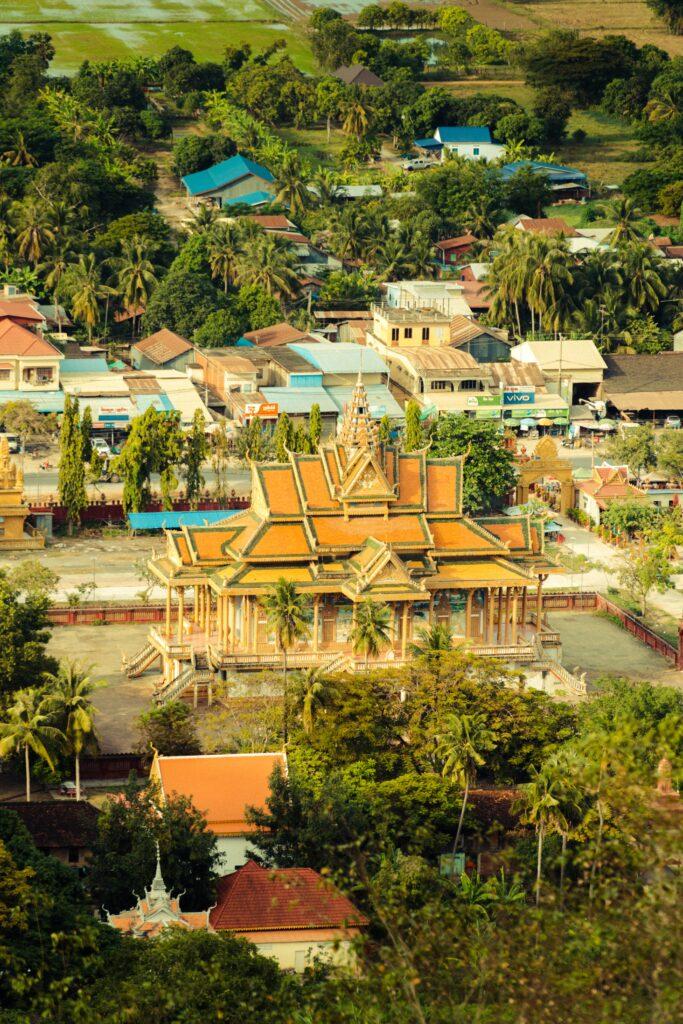
A hidden gem, Battambang exudes colonial charm with its well-preserved French architecture. Take a ride on the unique bamboo train, a makeshift locomotive that zips through the countryside. Explore the surrounding villages and witness traditional Khmer livelihoods, including rice paper making and traditional weaving.
Kep – Coastal Serenity and Crab Markets:
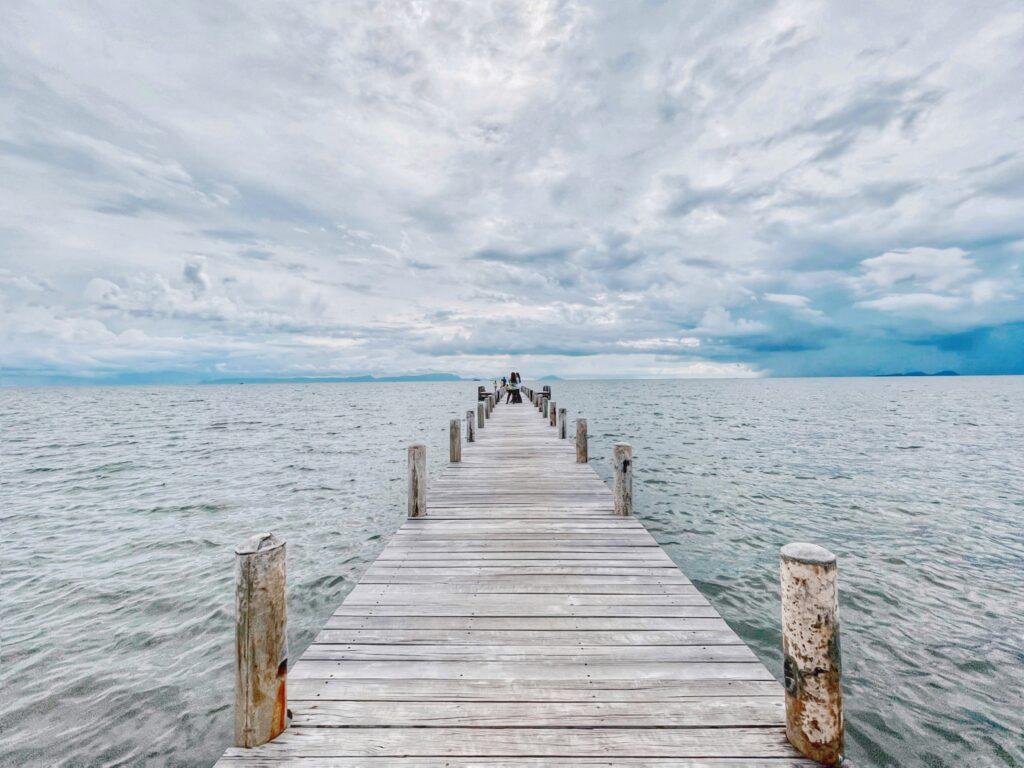
For a tranquil coastal retreat, head to Kep. This sleepy seaside town is known for its stunning sunsets, fresh seafood, and the famous Kep Crab Market. Indulge in the local delicacy, pepper crab, and relax on the pristine beaches. Kep National Park offers hiking opportunities with panoramic views of the Gulf of Thailand.
Koh Rong – Island Paradise:
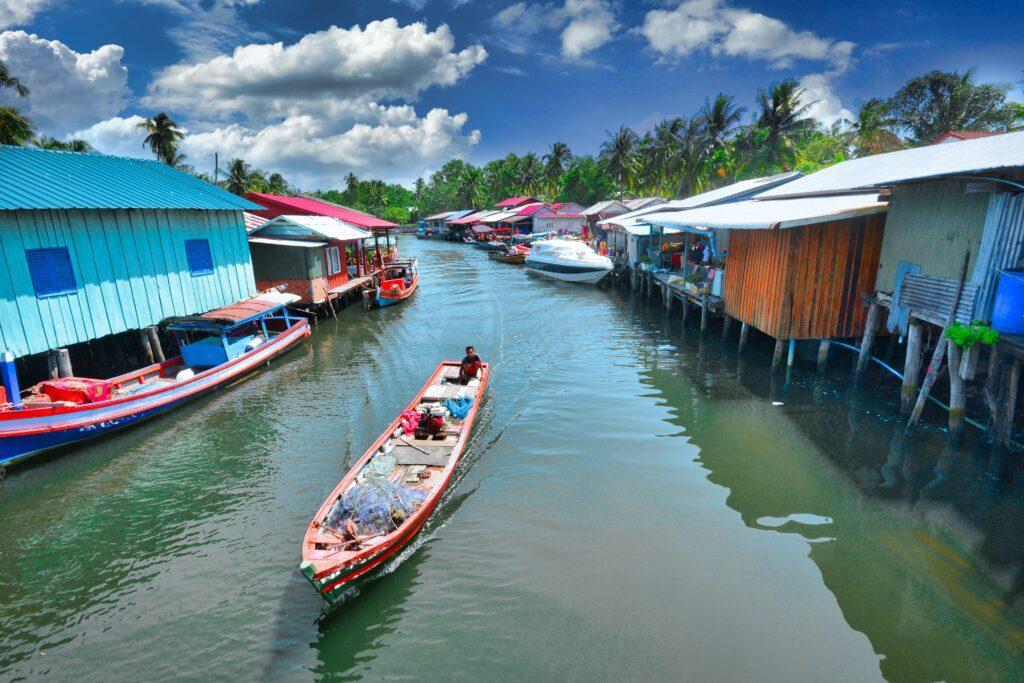
If you’re a beach enthusiast, don’t miss Koh Rong, Cambodia’s tropical island paradise. With crystal-clear waters and pristine beaches, Koh Rong is a haven for snorkeling, diving, and simply unwinding on the sandy shores. Experience the laid-back island vibes and explore the bioluminescent plankton at night for a magical experience.
Conclusion:
Cambodia’s best places offer a tapestry of experiences that cater to history enthusiasts, adventure seekers, and those simply looking for a relaxing getaway. From the awe-inspiring temples of Angkor to the coastal serenity of Kep and the tropical paradise of Koh Rong, Cambodia invites you to embark on a journey of discovery and exploration. Embrace the unique blend of ancient traditions and modern experiences that make Cambodia a truly enchanting destination.
Essential Traveling Tips for a Memorable Journey
Embarking on a journey, whether it’s a weekend getaway or an extended international adventure, is always an exciting prospect. To ensure a smooth and enjoyable travel experience, consider these essential tips that cover everything from planning and packing to staying healthy and making the most of your destination.
Plan Ahead:
Research your destination thoroughly, including its culture, local customs, and any travel advisories. Make a rough itinerary but leave room for spontaneity. Consider booking essential accommodations and transportation in advance.
Pack Smart:
Create a checklist to avoid forgetting important items. Pack versatile clothing and remember essentials like toiletries, medications, and travel adapters.
Travel Insurance:
Invest in comprehensive travel insurance to cover unexpected events such as medical emergencies, trip cancellations, or lost baggage. It provides peace of mind and ensures you’re protected throughout your journey.
Health Precautions:
Check if any vaccinations or health precautions are recommended for your destination. Carry a basic first aid kit with essential medications, bandages, and any prescription drugs you may need.
Stay Connected:
Inform family or friends about your travel plans and share your itinerary with someone you trust. Consider getting a local SIM card or an international roaming plan to stay connected during your travels.
Money Matters:
Inform your bank about your travel dates to avoid any issues with your credit/debit cards. Also, carry some cash with you. Keep important documents like passports and travel insurance in a secure, easily accessible place.
Safety First:
Be vigilant about your surroundings, especially in unfamiliar places. Avoid displaying valuable items openly and be cautious of your belongings. Research local safety tips and emergency contact numbers.
Cultural Sensitivity:
Respect the local culture and customs of your destination. Learn basic phrases in the local language, and be mindful of dress codes, particularly when visiting religious or culturally significant sites.
Pack Snacks:
Have a small stash of snacks to keep you energized between meals, especially during transit. This is particularly helpful if you have dietary restrictions or are traveling to a destination with limited food options.
Flexible Attitude:
Embrace the unpredictability of travel. Delays and changes are inevitable, so maintain a positive and flexible attitude. Use unexpected situations as opportunities for new experiences.
Capture Memories:
carry a good camera or smartphone with you to make your journey memorable.
Frequently Asked Questions (FAQs) for Travelers:
Q. Is it Safe to Travel to [Destination]?
A. Safety is a top priority for travelers. Before your trip, check travel advisories and reviews from reliable sources. Be aware of local safety guidelines and take necessary precautions, such as safeguarding your belongings and avoiding risky areas.
Q. What is the Local Currency?
A. Identify the local currency of your destination and exchange some currency before your arrival. Airports, banks, and exchange bureaus are common places for currency exchange. It’s better to carry some cash with you.
Q. How’s the Weather at [Destination] During [Month/Season]?
A. Check weather forecasts to pack accordingly. Consider factors like temperature, rainfall, and any seasonal variations. This information will help you plan your activities and attire.
Q. What’s the Best Time to Visit [Destination]?
A. The ideal time to visit a destination depends on various factors, including weather, festivals, and local events. Consider your preferences – whether you prefer a bustling atmosphere or a quieter experience. Off-peak seasons may offer better deals but could have less favorable weather.
Q. What’s the Average Daily Expense in [Destination]?
A. Research the cost of living in your destination and consider your travel style – whether you prefer budget, mid-range, or luxury options. It’s wise to have a rough budget to ensure financial preparedness.
Q. Are Credit/Debit Cards Widely Accepted, or Should I Carry Cash?
A. Understand the local payment preferences. While credit/debit cards are widely accepted in many places, having some local currency is beneficial, especially in markets or smaller establishments. Notify your bank about your travel to avoid any issues with card usage.
Q. What Vaccinations or Health Precautions are Recommended for [Destination]?
A. Prioritize your health by checking recommended vaccinations for your destination. Consult with a healthcare professional to ensure you are up to date on routine vaccinations and to discuss any additional precautions based on your travel plans.
Q. How Can I Stay Informed About Local Events and Activities?
A. Stay updated on local events, festivals, and activities by checking local websites, community boards, or using travel apps. Engaging with locals and seeking recommendations from fellow travelers can also provide valuable insights into the local scene.
Q. Are There Cultural Etiquettes I Should be Aware of in [Destination]?
A. Respect local customs and cultural norms. Learn basic phrases in the local language, be aware of dress codes, and understand proper etiquette when visiting religious or culturally significant sites. Demonstrating cultural sensitivity enhances your overall travel experience.
Q. Any Tips for Navigating Public Transportation in [Destination]?
A. Familiarize yourself with the local public transportation system, including buses, trains, and taxis. Research routes, schedules, and payment methods. Apps or maps specific to your destination can be valuable tools for navigating public transportation.
Remember, thorough preparation and awareness contribute to a smoother and more enjoyable travel experience. Always stay informed, be open to new experiences, and have a fantastic journey!

Travelstutor.com is a comprehensive travel website that provides valuable information and resources for travelers around the world. The website is managed by Safnaa, an experienced travel administrator with a passion for exploring new destinations and cultures.
As the administrator of travelstutor.com, Safnaa is committed to providing exceptional customer service and support to all visitors to the website. She is always available to answer questions, provide recommendations, and assist with travel planning, making travelstutor.com a valuable resource for travelers of all levels of experience.Whether you are a seasoned traveler or planning your first trip, travelstutor.com is the perfect destination for all your travel needs. With Safnaa at the helm, you can be confident that you are getting the best possible advice and support for your next adventure.





